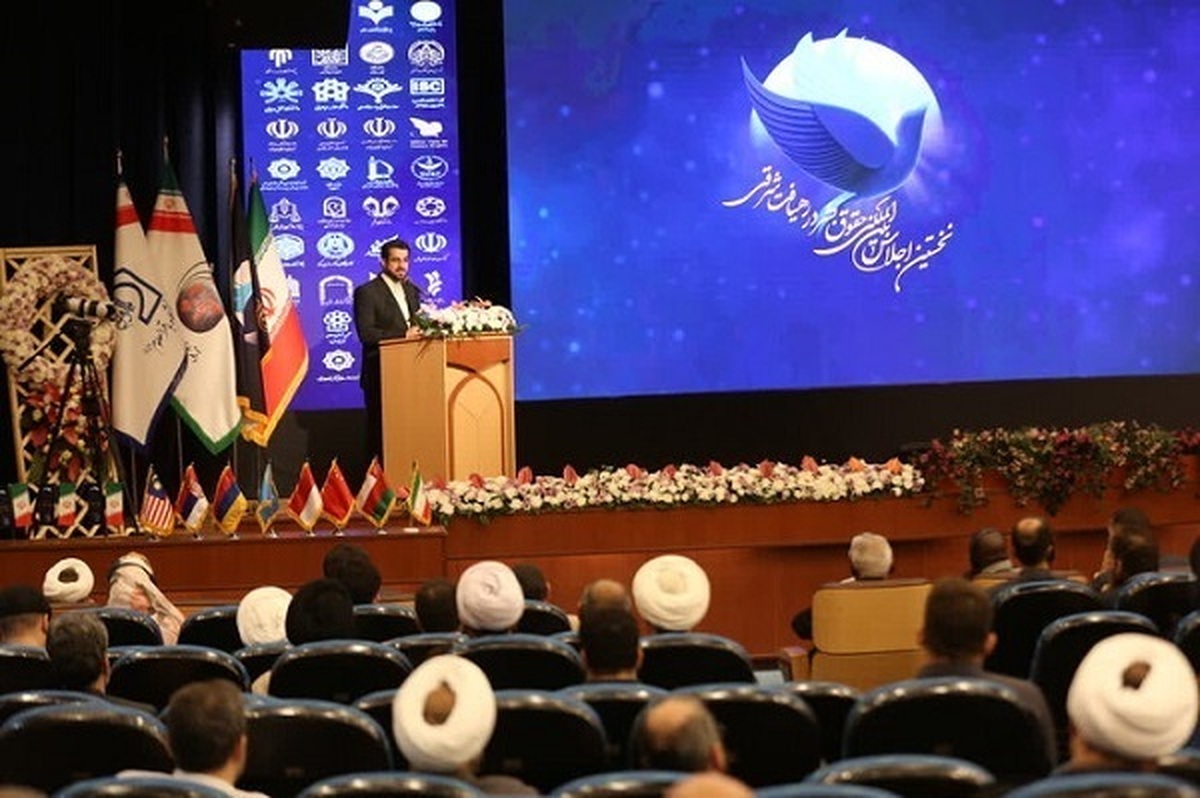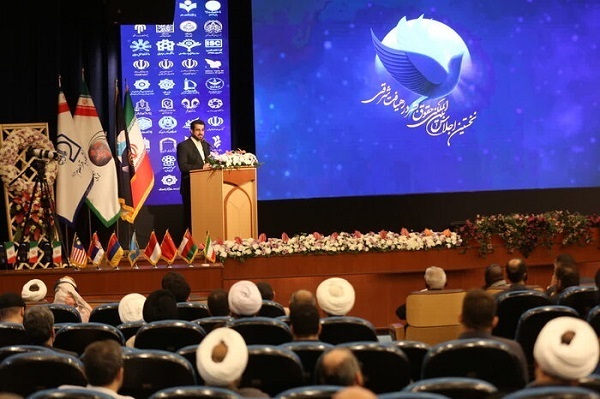Int’l Conference on Human Rights in Eastern Perspective: A Return to Humanity’s Roots


The conference was organized in Tehran on April 27-29 by the Islamic Culture and Relations Organization (ICRO).
In an article for IQNA, Lebanese media activist Rima Fares highlighted the importance of the conference:
In a time when concepts are intertwined and values are in decline, the conference emerged as an intellectual and cultural foundation that restores human dignity through a perspective rooted deeply in our Eastern civilizations.
It is quite different from Western views that often reduce human dignity to legal rights and ignore its spiritual and moral dimensions.
We have long been accustomed to reading human rights from a uniquely Western perspective, a perspective that imposes itself as the absolute reference, and thus ignores the rich cultural heritage that exists in our region, from Iran, to Mesopotamia to the Levant to India.
In these civilizations, human values were rooted in philosophy, literature, religion, and even the details of everyday life. From this perspective, this conference presented a set of rights that cannot be understood as rigid subjects, but rather as an integrated system that reflects our view of man as a spiritual and social being - and not merely a legal entity.
In the Eastern approach, a human being is part of an interconnected network of relationships, where his rights cannot be understood apart from his duties, and his dignity cannot be separated from his social and cultural environment.
Read More:
Hence, the conference addressed various dimensions including social justice in traditional societies, the philosophy of mercy in legislation, the status of women, and the right of oppressed peoples to determine their own destiny.
The conference went beyond abstract theory and presented practical approaches that show how the contemporary world can benefit from this balanced approach that brings together mind and heart, law and morality, individual rights and the collective good. The sessions of the conference focused on fundamental issues such as human dignity in the face of poverty and occupation, freedom of conscience, the role of women, and the right of people to sovereignty and justice, as these rights emerged from their roots and principles - not as superficial ideas.
This conference was more than just an intellectual event. It was a heartfelt call to redefine “humanity” with an Eastern perspective that rejects domination and embraces humanity with all its weaknesses and strengths and pain and hope. It's a call to listen to a profound civilization that's not dead, but in today’s world, it's waiting to be understood and respected.
The conference was attended by a select group of thinkers and scholars from around the world, including Iran, Lebanon, Iraq, Syria and India, who presented their academic papers addressing human rights issues from different cultural perspectives.
Sessions of the conference included lectures by theologians, philosophers, legal experts, and anthropologists who discussed the problem of transferring concepts from one civilization to another regardless of their cultural backgrounds. Participants stressed that Western legal models are not the only ones that can be generalized.
Read More:
The conference ended with a set of recommendations that called for the recognition of multiple legal references, respect for cultural traits, and opening the way for Eastern civilizations to participate in shaping a more equitable and inclusive global discourse for humanity.
In this context, we express our special gratitude to the Islamic Republic of Iran for hosting this conference and providing a space of free thought, a space that reflects a civilization that has the depth necessary to change the concepts of human rights on the solid foundations of justice, dignity and real human consciousness.
4284409



